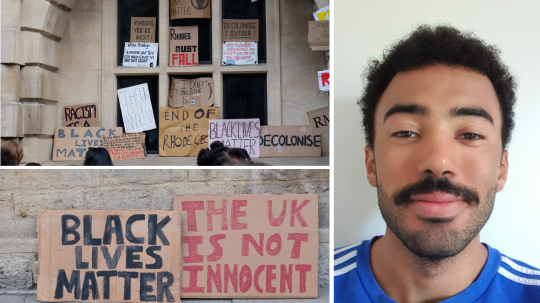It has been more than a year since the government launched its scheme to compensate victims of the Windrush scandal, and at least five applicants have died before receiving a penny. EachOther speaks to Windrush lawyers about the “boulders” being placed in the way of justice and what needs to be done.
For more than ten years before the Windrush scandal made national headlines, immigration lawyer Jacqueline McKenzie had been helping Caribbean-born Britons, who had come to live in the UK decades ago but were provided no official documentation, to prove their right to live in the country. At the time, she says, this generally didn’t cause too many problems for the people affected, such as in their jobs or housing situations. McKenzie helped them apply for citizenship, which was costly, or to obtain a biometric resident permit showing they have the right to be in Britain, the cheaper option.
However, the introduction of the government’s hostile environment policy in 2012 would irrevocably damage the lives of thousands from the Windrush generation and their children. Under the policy, a set of measures were enacted to make it as difficult as possible for those without leave to remain to stay in Britain. “The aim is to create, here in Britain, a really hostile environment for illegal immigrants,” said then home secretary Theresa May at the time. Under the Immigration Acts of 2014 and 2016, authorities including landlords, employers, banks and the NHS were legally required carry out ID checks and to refuse services if an individual was unable to prove legal residence in the UK. Employers and landlords faced harsh fines of up to £10,000 if they did not comply.
Hostile environment: ‘almost everybody in society was becoming an immigration officer’
The result was that members of the Windrush generation were wrongly denied housing, employment, and healthcare. Hundreds were mistakenly detained, deported or threatened with removal. All of these people had the right to live in Britain, despite not having been given the documents by the government to prove it. “For the first time, we were seeing it affecting people’s lives,” says McKenzie, who began to see an increasing number of cases.
In late 2017, the horrific human stories of the Windrush scandal gained national media attention. There was Paulette Wilson, a grandmother who moved to the UK in 1968 and worked for a period in the House of Commons restaurant, before she was detained and threatened with deportation to Jamaica. Wilson passed away suddenly at the age of 64 last month, having just one month before delivered a petition with other victims to parliament urging the government to speed up its payouts under the Windrush Compensation Scheme. There were also ordeals of Albert Thompson, who was denied cancer treatment on the NHS, and Anthony Bryan, who was twice detained for a total of nearly three weeks having lived in Britain for more than 50 years and, like Wilson, threatened with deportation. His story was recently dramatised in the BBC film Sitting in Limbo.

Jacqueline McKenzie. Credit: Courtesy of Jacqueline McKenzie
At McKenzie’s end, a meeting was called at Black Cultural Archives in Brixton, where as a speaker she was asked to hold free legal surgeries to help those affected. At the first surgery of these, McKenzie describes how there were “people queuing round the block”, which she says were mostly people from the Windrush generation. The clinics have continued to be held on various Wednesday and Saturdays since 2018, led by McKenzie’s firm McKenzie, Beute, and Pope, and were moved online during lockdown. “Whatever they can use, we’re still doing the work,” says McKenzie.
Windrush Compensation Scheme is too slow to process claims, say lawyers
The resulting political scandal was characterised by the failure of the government to act swiftly so as to make reparations towards the damage done to the victims. It took until August 2018 for the government to issue any kind of apology, having revealed two months earlier that the Home Office had mistakenly detained 850 people between 2012 and 2017. In November of that year, the then home secretary Sajid Javid revealed in a Home Affairs Select Committee that officials had confirmed that there were at least 83 cases of people being wrongfully deported, with officials fearing that there could be a further 81, and that at least 11 of these individuals had died.
After months of delay, the Windrush Compensation Scheme was finally launched in April 2019, allowing victims to apply for financial compensation as a result of the losses suffered, from employment to housing. But, the scheme has been widely criticised, including by McKenzie, for being far too slow to process claims. “The government is just sitting on these applications, for months and months,” she says, “Asking people for bits of evidence. I mean, some of this evidence goes back decades. These are people, who, life has really not been kind to them.” McKenzie says she has between 200 to 250 active cases, mostly compensation claims.
The government is just sitting on these applications, for months and months.
Jacqueline McKenzie, immigration lawyer at McKenzie, Beute, and Pope
McKenzie highlights several problems with the scheme, including that many people affected won’t qualify for anything as they have to show that they have suffered a loss. “It’s a scheme where you’ve got to demonstrate a loss, you either lost a job, or you lost out on an opportunity to go to university, or you were deprived healthcare or you lost your house,” she explains. “Because the Windrush generation has been here so long, not many of them are in that position really. They had secured tenures on council housing or they had bought their homes, so homelessness is not a massive thing.” McKenzie further criticises the scheme for “asking people for copious amounts of evidence, which goes back years, sometimes decades,” and, lastly, that the scheme doesn’t actively provide victims with compensation. “It’s not a scheme that says, ‘Sorry, we screwed up here and here is some money,’” she says.
McKenzie recalls the case of one woman who was wrongfully deported to Grenada, where she ended up being homeless, despite providing 75 pieces of evidence to the Home Office showing that she had the right to be in Britain. When the compensation scheme launched in April 2019, Mckenzie says that the woman applied immediately – however, she has still not received any compensation. “That’s over a year [ago] and this is a woman who, I can’t go into details of it, but unspeakable things happened to her when she was forced out of the country,” says McKenzie.
The government’s own figures show how frustratingly slow it has been at processing claims. In July, Home Office statistics revealed that out of the 1,392 claims it has received since launching the scheme in April last year, only 221 had so far received payouts which collectively amounted to a total of £1,185,830.58. Some 35 claims had been rejected. The government has previously said that it would pay up to £200 million in total in compensation to the victims of the Windrush scandal.
Windrush review: scandal was ‘both foreseeable and avoidable’
The Home Office’s long-awaited Windrush Lessons Learned Review by Wendy Williams was published in March, with McKenzie being a member of the report’s Independent Advisory Group. It offered a scathing indictment of its handling of the crisis, which Williams wrote was “both foreseeable and avoidable”. In June, just four days after Wilson and other campaigners delivered their petition, Home secretary Priti Patel accepted all 30 recommendations in the report, including to set up a race advisory board and to undertake a full review into the hostile environment policy (which has since been rebranded as the ‘compliant environment’). Also in June, the UK’s human rights watchdog, the Equality and Human Rights Commission (EHRC) began a review into the hostile environment policy, which will look at the Windrush scandal and whether the Home Office fulfilled its equality duties, with its recommendations set to be published in September.

The Empire Windrush. Credit: Wikimedia Commons
Miranda Grell, a barrister at 10 King’s Bench Walk, also says that the government has been too slow to process claims, highlighting how victims are dying “one by one” before receiving any payouts from the Windrush Compensation Scheme, with the tragic death of Paulette Wilson being the latest. “We know that administrative schemes take time to set up, but you would have thought there would be more urgency about this situation,” she says, before adding: “It’s beyond slow now, it’s ridiculous.” For Grell, who during her pupillage assisted with the legal surgeries at the Black Cultural Archives, the government’s response to the scandal has been “absolutely appalling”. Grell, who also contacted lawyers to provide advice at the legal surgeries, is calling for the government to provide upfront “interim payments” to the victims, often referred to as “ex gratia” payments in the legal sphere, as they wait for their claims to be decided. Her comments echo those of MP Meg Hillier, who in March last year called for an “ex gratia flat rate” to be paid to victims. While Grell says that the government does appear to have an ex gratia scheme in place for Windrush victims – this is referenced in an April 2019 government document and in a parliamentary debate led by MP David Lammy – she is calling for clarity on this. “Apparently there is some sort of ex gratia scheme, but it’s very confusing for just ordinary members of the public to find out clear information about it,” she says.

Miranda Grell. Credit: Cemanthe McKenzie of Lemon Feather Photography.
“The government is placing boulders and impediments and bureaucracy in the way of justice,” she says. “They know what they need to do. They know who these people are, they have their National Insurance records, they have their tax records, they’ve got their employment records, there is no need to be putting the burden on those people to go and collect lots of bits of paper where the government then says, ‘Oh, something is missing and we’re not giving you compensation.’”
The government is placing boulders and impediments and bureaucracy in the way of justice.
Miranda Grell, barrister at 10 King’s Bench Walk
“This is a wrong that is so disgraceful. Yes, you have to have a kind of a filtering process to ensure that it’s not taken advantage of and that there’s no fraud,” she adds. “But we’ve looked at these people, we all know who these people are. They’re there in the community, journalists have spoken to them. There is very little fraud in this generation of people. These are people who’ve just come and worked their socks off for Britain.”
‘These are people who’ve just come and worked their socks off for Britain’
Grell says that the scandal left those from the Windrush generation and their descendants, including herself, reeling from a “collective trauma” that has made them question their Britishness. “I was born here. I went to school here, and what the Windrush scandal has said to me, is, am I really British?,” she explains. “Because I have a British passport. I was born in a British hospital. I went to school here. I’ve worked here, I pay my taxes here. But at the whim of a future government that just decides to tinker with the rules, are they going to just remove my citizenship?” She adds: “It’s made people who are born here feel very insecure and confused about our places.”
Ultimately, she says, the Windrush scandal is part of a wider “architecture of systematic racism” in the UK. “We really need the government to understand there is a difference between playground taunts, and names, and ‘the sticks and stones won’t break my bones’, and the systems that perpetuate inequality and racial injustice, and the hostile environment is one of them,” she says. “It’s all part of that bigger architecture.”

Zita Holbourne. Credit: Elizabeth Dalziel (photographer), courtesy of the Women Activists of East London exhibition.
Like McKenzie and Grell, Zita Holbourne, co-founder and national chair of anti-racism campaign group Black Activists Rising Against Cuts (BARAC UK), which recently released a documentary on the Windrush scandal, is critical of the Windrush Compensation Scheme. “There are people dying […] who haven’t even been compensated, there are people destitute, it’s taking too long to get compensation to people,” she says. Holbourne, who has also been involved in helping the victims, says the government’s response to the scandal has been “woeful,” adding: “It was too slow […] they effectively tried to sweep it all under the carpet.” She heavily criticises the Home Office for allegedly destroying thousands of landing cards recording arrivals of the Windrush generation into the UK, and the department’s controversial Nexus deportation scheme run with the Metropolitan Police Service, whereby individuals can be deported if it is shown that their presence is “not conducive to the public good”.
For Holbourne, the scandal has been largely the result of institutionalised racism, which is drastically impacting the lives of the children of the Windrush generation too. “The descendants of that generation, the children and grandchildren, who have also spent most of their lives in the UK are also being subjected to discrimination and injustice […] The systemic racism we face has at its roots the legacies of colonialism and enslavement, and the Windrush scandal and all of these issues I’ve just talked about are all part of that,” she says.
Response from the Home Office
A Home Office spokesperson said: “We are determined to right the wrongs experienced by the Windrush generation which is why we established the Windrush Compensation Scheme. The first payment was made within four months of the scheme launching and has now offered £1.5 million to claimants, with more payments being made week on week.
“We are continuing to process individual claims as quickly as possible, but cases must be processed individually, with the care and sensitivity they deserve, so that the maximum payment can be made to every single person.”





